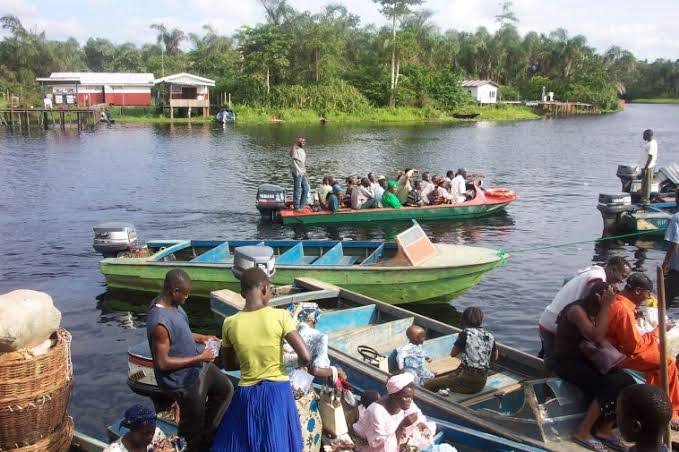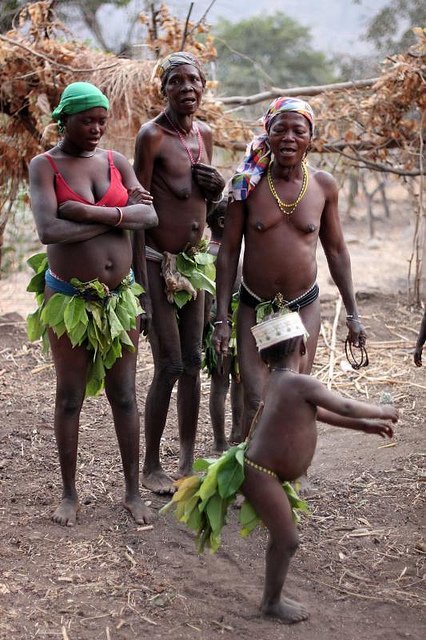Introducing Taofeeq Adebayo, a visionary innovator dedicated to transforming science education through the “Science in Yoruba” project.
Taofeeq Adebayo is passionately committed to making scientific knowledge more accessible and relatable by integrating the Yoruba language into science teaching. His groundbreaking work aims to bridge the gap between modern science and indigenous languages, fostering inclusivity, cultural preservation, and a deeper appreciation of scientific concepts within Yoruba-speaking communities. Join us as we explore how Taofeeq’s inspiring initiative is reshaping science education and empowering learners to connect with the world around them in their native language.
1. Tell us about yourself and your background
My name is Taofeeq Adebayo, and I am the founder and director of the Science in Yoruba project. I was born in Iseyin, Oyo State, and spent my childhood days working in the Aso Ofi industry. One of the happiest moments of my life was when my son was born and I became a dad. One of my darkest was the day in New Orleans when I learned that my father had passed away. I was a graduate student then, and it was deeply painful to know that the man who had invested so much in my education would never see me earn my PhD and become a professor. I really miss Baba Elepo, as we fondly called him.
2. Tell us about your education and occupation.
I earned my bachelor’s degree in English from Obafemi Awolowo University, Ile Ife. Then, I went to New York University (NYU) as a Fulbright fellow in 2015. At NYU, I completed non-degree coursework in Linguistics, Philosophy, and Africana Studies. I received a PhD in Linguistics at Tulane university, New Orleans, in 2022, and I am currently an Assistant Professor at California State University, San Bernardino, where I teach various topics in Linguistics.
3. Tell us about the amazing "Science to Yoruba" project.
The Science in Yoruba project began in 2017, when the main focus was to translate a JSS1 Basic science textbook into Yoruba. To do this, I collaborated with other graduate students from University of Ibadan. By 2019, we had completed that translation and taught the material to students at three schools in Ibadan, namely Ajibode Grammar School, Abadina College, and Orogun Grammar School. Then in 2020, while I was in Nigeria for fieldwork, the COVID-19 pandemic struck and in-person teaching became impossible. That was when I started thinking about how to broaden the project’s reach beyond the classroom.
I taught myself video production and began creating illustrated videos on topics ranging from COVID-19 and the universe to biology and physics. In many ways, the pandemic was the catalyst that pushed this work into the digital realm. Building an online audience was slow at first since social media platforms take time to categorize and promote new content, but the project has continued to expand.
4. What motivated you to create this project?
What piqued my interest in this kind of project is the knowledge inequality that I have observed right from my childhood. While speakers of languages like English enjoy ready access to modern STEM education, many speakers of African languages who do not speak a colonial language, including some of my own siblings and friends, are effectively cut off from learning, sharing, and advancing this body of knowledge.
My passion for this kind of work began in high school. After finishing our exams in those days, my friends and I would gather under a tree and excitedly discuss the novels of D. O. Fagunwa, as if we were the ones who wrote them. I remember thinking: why can’t we talk about biology, physics, or mathematics in our mother tongue with that same amount of energy?
At Obafemi Awolowo University, that question only grew stronger. I began writing for national newspapers like The Nation, Tribune and The Sun, and in one article that I wrote for The Nation in 2011, I argued that Yoruba and other African languages are more than capable of expressing scientific and technological ideas. When I started my PhD at Tulane University in 2016, and I got a fellowship grant from the Andrew Mellon Graduate Fellowship in Community-Engaged Scholarship, I realized it was time to turn words into action. That was how the Science in Yoruba project started. I went on to collaborate with other graduate students specializing in microbiology, physics, chemistry, and linguistics to produce the first Yoruba translation of a science textbook.
5. What have been your major achievements so far?
I think the major achievement of this project is how it has successfully shown people that our language is capable of expressing the most complex of scientific knowledge. If you go through the comments that people make on Science in Yoruba videos online, you will see a lot of people realizing for the first time that our language is capable of expressing science. Also, the project has now been able to generate thousands of scientific terms in the language. What is particularly exciting is how ẹgbẹlẹgbẹ, the word that I created for million in Yoruba, is now being used by many people. I consider this to be one the achievements of this project. It clearly demonstrates that with more effort, it is possible to transform the linguistic landscape of Yoruba land into one where scientific knowledge is a natural part of the everyday vocabulary that people use in mundane conversations.
Apart from that, as far as I can tell, it is this project that pioneered scientific explainer videos in the Yoruba language. When I started producing my videos in March 2020, I did not have any role model in Yoruba or any other African language to look up too. If there is any project in an African language that has produced the most explainer videos on various areas of science, it is the Science in Yoruba project. I am not aware of any other projects that have produced extensive explainer videos in an African language on such areas as astronomy, biology, pre-history, electronics, atmospheric science, virology, pathology, space science, chemistry, physics, technology, entomology, biology, paleontology, seismology, geology, mathematics, hydrology, meteorology, oceanography, atmospheric science, and health science. In some areas, the only comprehensive video explanations available in an African language on a scientific concept are the ones that I have produced. I am not aware of any other comprehensive explainer videos in an African language on digital communication, radiometric dating, digestive system, respiratory system, earth geology, etc. In these areas, the Science in Yoruba project is the pioneer in Africa, as far as I am aware.
6. What setbacks have you experienced along the way?
The major setback that I have encountered in this project has to do with publishing books that emanate from it. Our manuscript for the first Yoruba translation of a science textbook is still with the publisher, Learn Africa PLC in Lagos. Learn Africa PLC owns the copyright to the textbook we translated and we had an understanding then that they would be the one to publish our translation. That means that our translation cannot be published by any other publisher. I delivered the manuscript to them in 2020, but they have not done anything about it till today. What is extremely painful is that because they did not proceed with the publication in time, I was not able to use the funding I had from my fellowship towards the publication. I lost that funding when I graduated from Tulane University in 2022. It seems like the publisher was concerned about the fact that people may not buy the book, given the low rate at which people buy and read Yoruba books.
I have now completed another book that I wrote from the scratch and is not limited by any copyright concerns. The book offers a basic and comprehensive introduction to the scientific knowledge and it is meant to provide the foundation for the physics, biology, and chemistry books that I will be producing in the future. The book has now been accepted for publication by a major publisher. However, the publisher would not proceed unless I provide the money to print a thousand copies. I am currently not able to provide all the funding to print this copies. My hope is to get financial assistance from the Yoruba public to support the publication, so that we can distribute the book to students across the Yorubaland free of charge. Getting this financial support is the current challenge that I am trying to address.
7. How can this project benefit Yoruba people?
My work with this project is to transform the Yoruba language so that it can be easily used to transmit scientific knowledge both in the classroom and in public discourses. Its benefit is that it facilitates the transmission of scientific knowledge using our own language. My goal is that in the not so distant future, we will be able to use Yoruba to teach science at any level of education, while also being able to use the language for public scientific conversations.
8. What other experience would you like to share?
I would just like to note that I genuinely appreciate the support that this project has received so far, and I would like to take a moment to appreciate the thousands of followers that help this project spread across the Yoruba land. They not only help share my work but also provide insights that help me revise some of the new terms that I am developing. This support is one of the memorable parts of my experience with the project.
9. How can the public support this project?
The public can help in various ways. First, they can help financially to support the publication of my book that has been accepted for publication by a publisher so that we can give copies to students free of charge. Second, they can help spread this project so that more Yoruba people are aware of it. Doing so will help ensure a quick and sustainable transformation of our linguistic landscape. Third, they can help refine the terms that are being generated, by suggesting new terms or reviewing suggested terms to indicate acceptances or lack thereof. Most importantly, they can help by using the new terms that are generated in this project. Without people using the new Yoruba words that are generated through this research, this project is bound to fail. For example, there is now a Yoruba word for “data” which is ẹ̀gbà. People can use this word to support the vision of this project. If they have a better idea, they should offer it so that we can review it. What is important is that we have a Yoruba word that is available for use.
10. In conclusion, would you love to add anything to this interview?
Not really. I will just like to appreciate Yorubaness for the opportunity to share my experience with you and Science in Yoruba followers for their support.
11. How can the public follow science in the Yoruba Project (you can add website and social media links and handles)? Thanks ✨
The public can follow the project on Facebook at https://www.facebook.com/scienceinYoruba, TikTok at https://www.tiktok.com/@scienceinyoruba, Twitter (X) at https://x.com/Sci_in_Yoruba, and YouTube at https://www.youtube.com/@scienceinyoruba. They can also check out the project website at https://scienceinyoruba.org/.
Thank you!








0 Comments